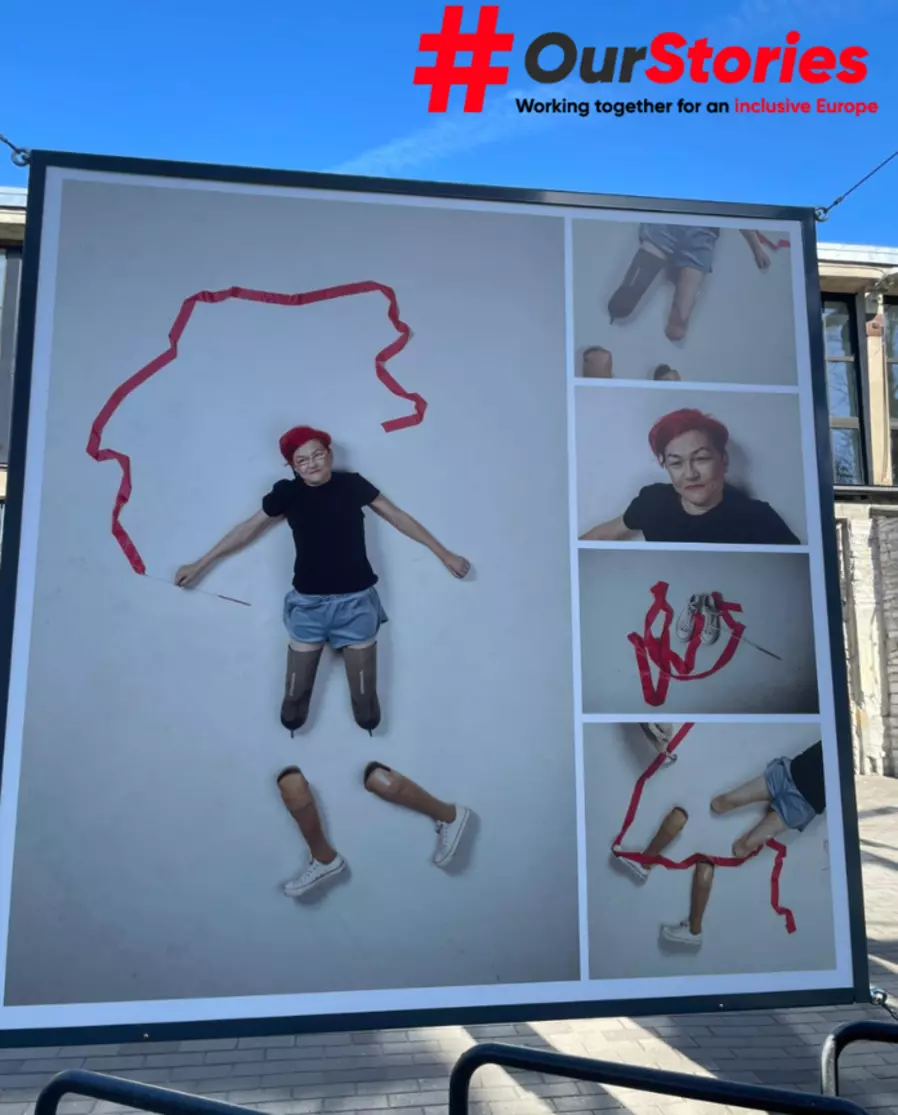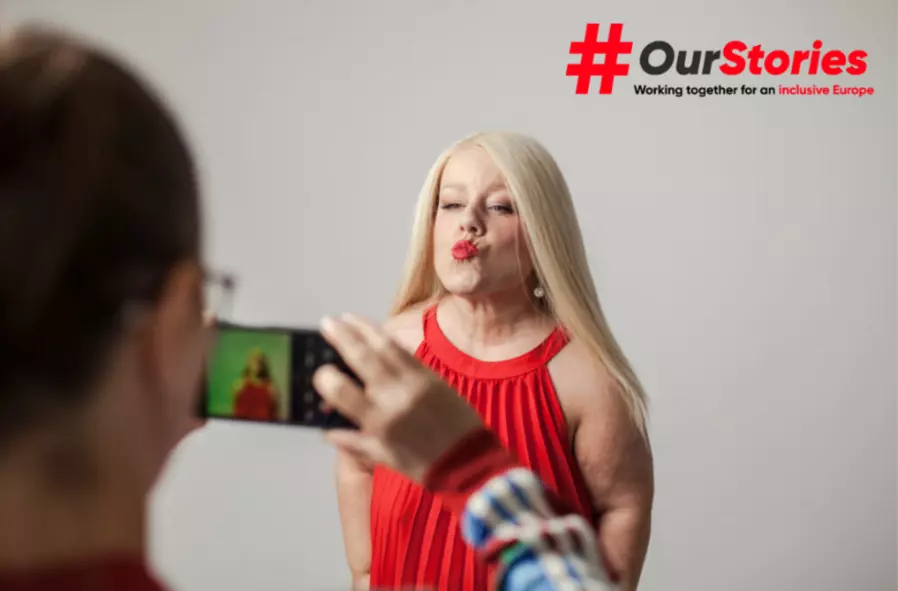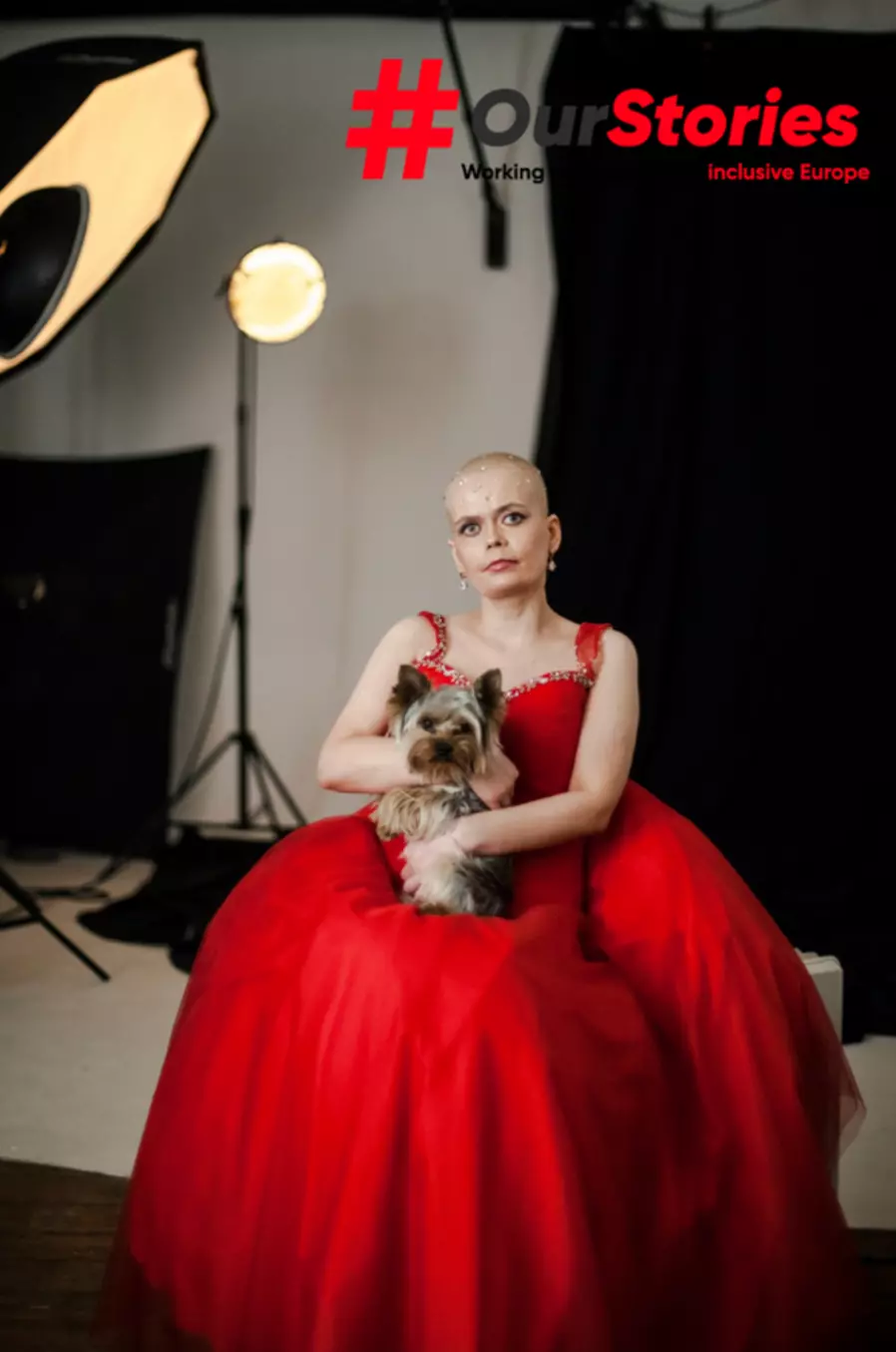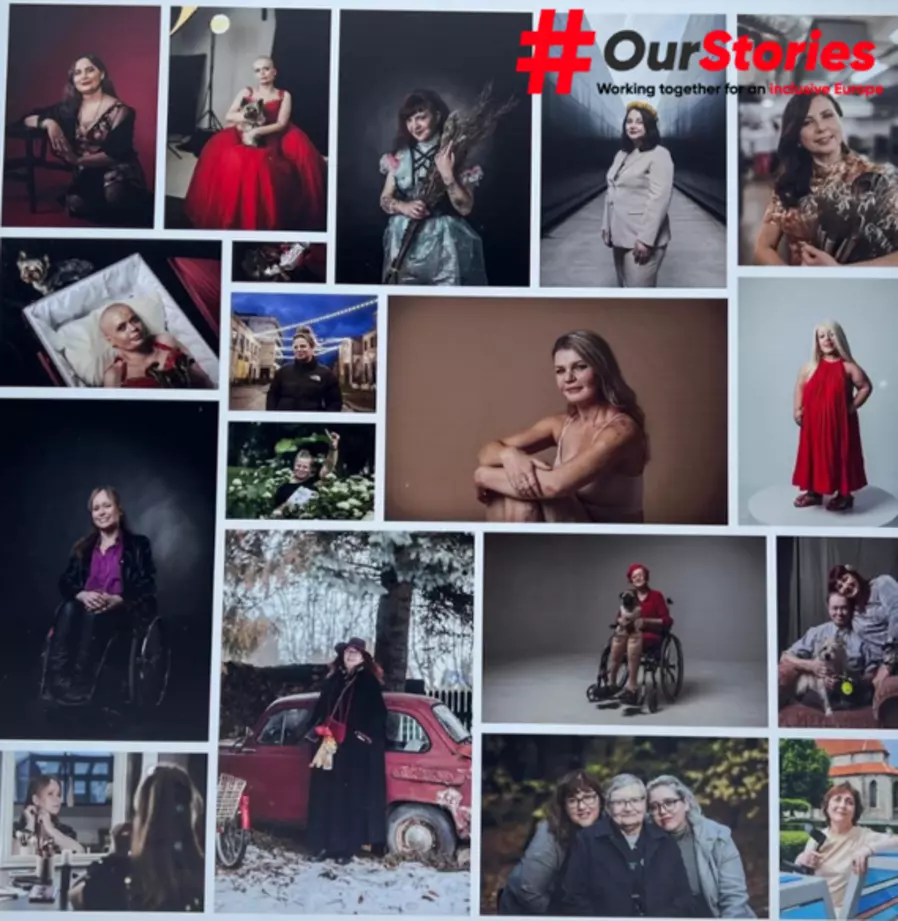#OurStories: Women with disabilities: We need to prove ourselves twice as much as women without disabilities
The Estonian Society of Neurofibromatosis has launched the project "Women with Disabilities: Nothing About Us Without Us!", funded by the EEA Grants, to empower women with disabilities and combat prejudice and negative stereotypes that are widespread in the society. This is especially challenging in a society where traditional gender roles are still in place and the gender pay gap ranks among the highest in Europe.
In Estonia, there is a significant gap in public policies addressing the unique vulnerabilities of women with disabilities, who are often victims of physical, sexual, and psychological abuse, including stalking, compared to women without disabilities. Additionally, they are not included into policy making when it comes to topics related to women with disabilities. They lack physical access to gynecologists, and women's shelters are generally inaccessible. Women with disabilities are often regarded as "less valuable," even more so than men with disabilities. The concept of "multiple discrimination" is not recognized in Estonian law, severely limiting the defense and rights of women with special needs.
As part of the project, several surveys, workshops, exhibitions, and round tables were conducted, alongside meetings with policymakers and participation in policy development. Three surveys were conducted during the project period to gather input on the shortcomings in the rights of women with disabilities in Estonia and to assess public and specialist awareness of these rights. The surveys aimed to better understand the situation of women with disabilities in Estonia, highlight the importance of this issue at societal and political levels, and identify areas needing intervention. The findings were used to inform advocacy activities.
The survey revealed that outdated gender norms and expectations disproportionately affect women with disabilities. In our society, women are often expected to be self-sufficient and to juggle multiple responsibilities, leaving little room for them to seek help. As a result, women with disabilities experience significant isolation and face difficulties in finding partners.
The study also indicated a need for better alignment between the social and healthcare systems. Currently, there is confusion about where to refer people or who they should turn to for help. In contemporary social care, children with disabilities are prioritized over adults.
Women with disabilities also expect to be more involved in decision-making processes concerning their own issues. Currently, representatives for women with disabilities are often people without disabilities or men with disabilities, which fails to address gender-specific concerns. Women with disabilities want to be seen as equals, as women, and not as a marginalized part of society.
As part of the project, an outdoor photo exhibition was launched, showcasing 14 stories of women with disabilities to raise awareness about their needs. The exhibition was initiated by Keiu Roosimägi, Head of the Society of Neurofibromatosis and the project leader. Keiu believed that the most confident women are those who have the courage to show themselves how they are.
The project empowered women with disabilities, providing them with the strength and knowledge to know they have a place in society and are valued.
"I am glad to say that there are courageous women with disabilities who present themselves as they are, regardless of their physical differences and illnesses," said Kristina Amor, project manager.
One of the models, Jagna Hunt, who is 119 cm tall, shared her story at Estonian Public Broadcasting show Ringvaade.
“The fact that me or some other woman has a different physical appearance, doesn´t mean, that our mind doesn´t work the same way. The society often thinks that. We need to prove ourselves so much more than women without disabilities”, said Jagna.
Unfortunately, while the project was still ongoing, Keiu Roosimägi passed in July 2023, after a long illness. As a woman with special needs, she spent the last years of her life fighting for the rights of women with disabilities.
“We thought that it is not right to replace Keiu just because of her health issues or disability, even in the case when her condition worsened. In this case, the project would be contradictory to its own objectives and principles. People with disabilities must have a chance to work in leading positions, even if the work processes have to be adapted and work processes can take longer”, said Kristina Amor.
Amor concluded, that the results of the surveys gave them knowledge of what women with disabilities are facing, how they can be supported, which trainings are needed to conduct in their organization and what they need to focus on in advocacy and etc. Women with disabilities need tools and methods, to become more aware of their power and capabilities and how to empower themselves.
The project Women with Disabilities: “Nothing About Us Without Us!” is financed by the Active Citizens Fund, which is mediated in Estonia by the Open Estonia Foundation in cooperation with the Network of Estonian Nonprofit Organizations (NENO).
Photos: Alana Proosa and project´s Facebook page.
This article is part of the #OurStories campaign. The campaign looks at the vast variety of inspirational stories of projects and connections made possible through the EEA and Norway Grants. We will be sharing these stories on this website through articles and videos published on social media and Youtube. More importantly, #OurStories is a platform for the thousands of project participants who have in one way or the other been involved in projects made possible by the EEA and Norway Grants.
Follow us on social media(@EEANorwayGrants) to stay up-to-date on #OurStories and find more stories here.





